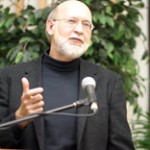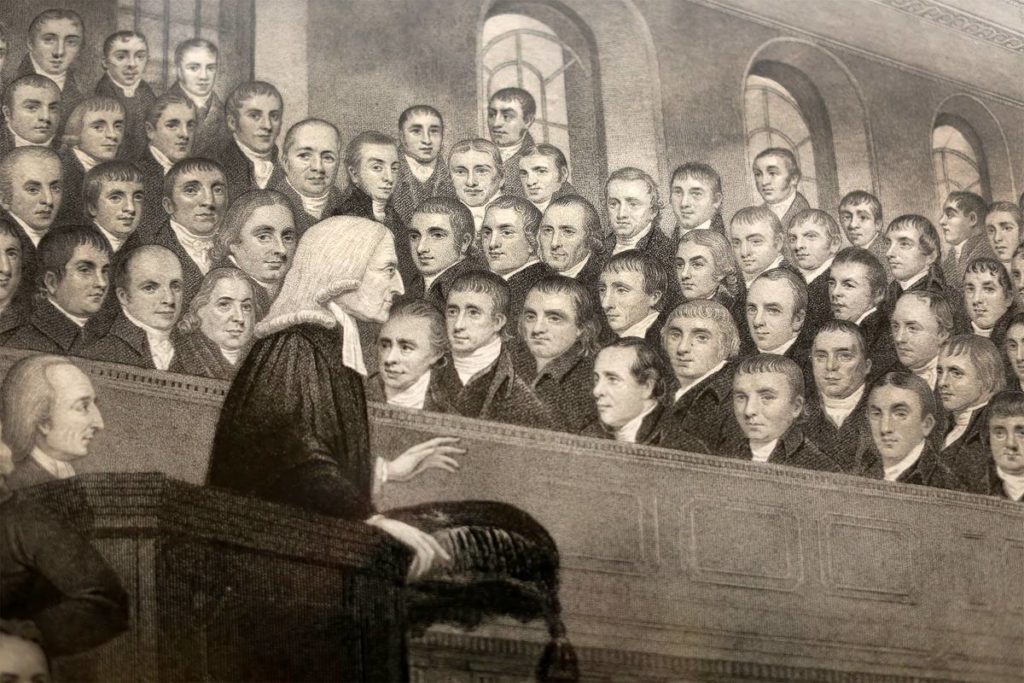
Timothy W. Whitaker is a Retired United Methodist Church bishop who served the Florida Area.
UM Voices is a forum for different voices within the United Methodist Church on pressing issues of denominational concern. UM Voices contributors represent only themselves and not IRD/UMAction. This post was originally shared by Bishop Whitaker in an email. It is reprinted with his permission.
It is often implied that doctrine (what Christians believe) and discipline (how Christians live) are very distinct. So we may be orthodox if we assent to the doctrine of the Trinity and the person and work of Jesus Christ, even while rejecting disciplines that the church since the times of the apostles and fathers also declared orthodox.
Supposedly disputes about discipline should not divide the church since discipline is not on the same level as doctrine. But if the law is a Christological issue, as John Wesley taught, with the church’s apostolic and catholic tradition, then downplaying the status of discipline is misleading.
At the heart of John Wesley’s Standard Sermons are three sermons about the laws’ meaning: Sermons XXIX, XXX, and XXXI. These three sermons immediately follow his sermons about the Sermon on the Mount, advocating a rigorous Christian life striving toward perfection in love in heart and life. Wesley explains the relation of the law and the grace of God, against antinomian motifs of the “evangelical” preachers and groups of his day.
Wesley’s three sermons on the law are implicitly Trinitarian. The first sermon explains the nature of the law, and Wesley interprets the law as the “image” of the being of God. The Father is the principle of the deity of the triune God, so this first sermon primarily concerns the Father. The second sermon, focused on the Son, argues God’s law is established by faith, explaining how the Christ’s preaching entails preaching the law. The third sermon explains practical guidance about establishing the law by teaching, preaching, and spiritual discipline. The third sermon deals with the experience of the church and the Christian, involving the Holy Spirit’s work.
The law is a Christological issue, Wesley shows, and misinterpreting the nature and role of the law in the church and in the Christian life distorts the church’s core doctrine about the person and work of Jesus Christ.
When Wesley speaks of the law, he means “the moral law, not the ancient law of Rome or the ceremonial law of Moses.” This moral law did not begin with God’s revelation to Moses, but with the creation of the world. God wrote this law within “the inmost spirit” of all intelligent beings, both angels and human beings. The fall of humankind “wellnigh effaced” the law out of the human heart, but, by the gift of God’s own Son Jesus Christ, God “in some measure, re-inscribed the law on the heart” of sinful creatures.
Before Christ’s coming, God had called forth a particular people Israel to know and obey him, and God gave to Israel the law of Moses. This written law helped educate humanity about God’s will, but the law of Moses is only an expression of the moral law intended for all humanity from the start because the moral law is nothing less than “the express image of His person,” meaning the law of God constitutes “the original ideas of truth and good, which were lodged in the uncreated mind from eternity.”
Wesley astonishingly uses a key Christological text from Hebrews 1:3 to define God’s law. The author of Hebrews is describing the Son of God, and Wesley uses the author’s description of the Son–“the express image of His person,” or “the exact imprint of God’s very being” (NRSV)–to speak of the moral law of God. Wesley is aware of his boldness because he says, “Yea, in some sense, we may apply to this law what the Apostle says of His Son….”
Apparently Wesley was not afraid to speak of God’s law in the same manner as Hebrews defines the Son of God because Wesley teaches that Christ reveals the eternal law of God, and Christ is the one through whom we are justified by faith through grace for the purpose of being able to fulfill the “just requirement of the law,” as Paul says in Romans 8:1-4.
If the law of God is derived from the mind of God, then, as the embodiment of the very image of God or the incarnation of the Word of God, Jesus Christ is the personal divine-human revelation of the law and its fulfillment.
Wesley is a practical rather than a dogmatic theologian. In his second sermon on the law, Wesley shows that the apostle Paul preached the law when he preached Christ, as the sermons of Paul in the Acts of the Apostles indicate. Wesley believes that it is plain from Paul that to “preach Christ” is also to preach God’s law, which entails an awakening to the reality of sin, repentance from sin, trust in the atonement from sin through Christ, and growth in being holy by the power of the Holy Spirit sent from the Father through the Son.
Here Wesley writes, “To preach Christ, is to preach what He hath revealed, either in the Old or New Testament; so that you are then as really preaching Christ, when you are saying, ‘The wicked shall be turned into hell, and all the people that forget God’, as when you are saying, ‘Behold the Lamb of God, which taketh away the sin of the world!'”
It is a Christological truth that the meaning of the person and work of “Christ” includes all that Christ revealed. Wesley argues that, while we are justified by faith, “without the works of the law, as any previous condition of justification,” it is also true that the works of the law are “an immediate fruit of that faith whereby we are justified.”
In Law and Love, Volume Four of A Marginal Jew (New Haven: Yale University Press, 2009) – his vast research on “the historical Jesus” – John P. Meier shows there is no solid historic basis for thinking that Jesus violated the law of the Torah during his career, including when he performed healings on the Sabbath. Nor is there evidence that he violated the purity codes although he put emphasis on “purity of heart.” Jesus went beyond the Torah by prohibiting divorce and oaths and by issuing a new commandment to love enemies. In all the cases where the Gospels record accusations that Jesus violated the law, Jesus was not violating the Torah but only refusing to accept certain interpretations of the law. By exercising his prophetic authority to go beyond the Torah, Jesus was not violating the Torah but illumining God’s law that was divinely intended from the beginning in the creation.
The notion that Jesus was a renegade against the law is fantasy. How could any Jew in the first century gain a following as a prophet, much less as the Messiah, if he were perceived trampling on the law of God? He was engaged in legal disputes with others about how to interpret the law, but that was expected of teachers and prophets.
According to Christian tradition, the task of Jesus during his earthly career was to give a final, authoritative interpretation of God’s law by his teaching to his disciples. He himself embodied the law through obedience to the God of Israel, whom Jesus, as the Messiah and the incarnate Son, called “my Father.”
A Christological approach to the God’s law must include the apostolic witness to the life of Jesus, his redemptive death, his glorious resurrection, and his ascension into heaven to be seated at the right hand of the Father. In this total event of revelation and salvation, to which the apostles are witnesses, Jesus Christ is “the end of the law so that there may be righteousness for everyone who believes” (Romans 10:4).
Christ is not the “end of the law” as antinomians say. According to the apostolic witness, Christ is indeed “the end of the law” by accomplishing the law’s goal. Through what Christ has done for us we can fulfill what the law demands and realize the good that God intended for us from the start. A Christological approach to the law must include the life and teaching of Jesus because, as the obedient Son of the Father, he both taught the true meaning of God’s law and embodied it.





Comment by Andrew Hughes on May 22, 2019 at 12:01 pm
To me, “Progressivism” is just a revival of an ancient problem that the apostle Paul and others had in the early church; “Gnosticism”. The gnostics believed our physical body, and its actions, have little to do with the spiritual man; thus, the Mosaic law does not apply in the “Age of Grace”, of which we now live. Help us Lord to repent. You are sovereign and never change. Without repentance and change there is no forgiveness of sins.
Comment by John Smith on May 30, 2019 at 6:26 am
So we have talked our way into a spiral to say, what? Orthodoxy and Orthopraxy are linked? One requires the other? That your actions are the only true measure of what you believe? That the church should be just as concerned with behavior as doctrine? Or are there some dog whistles here that I’m missing?